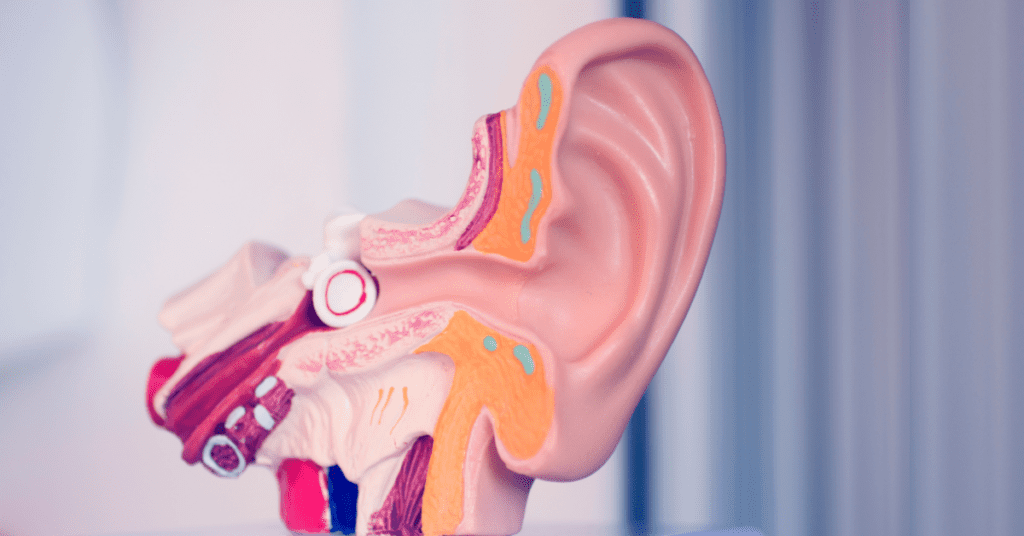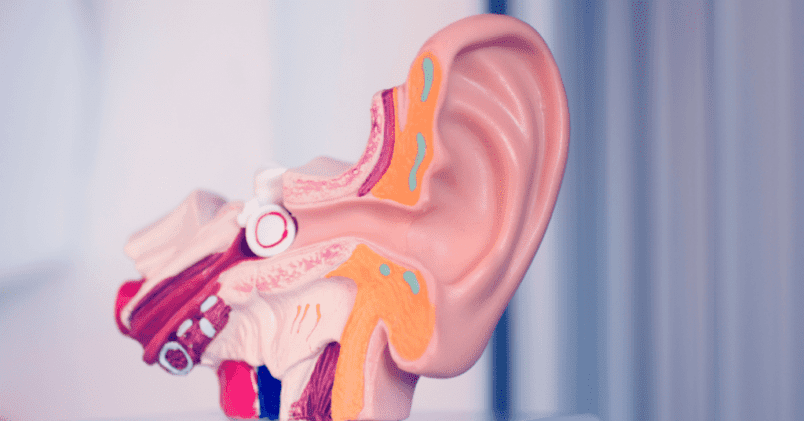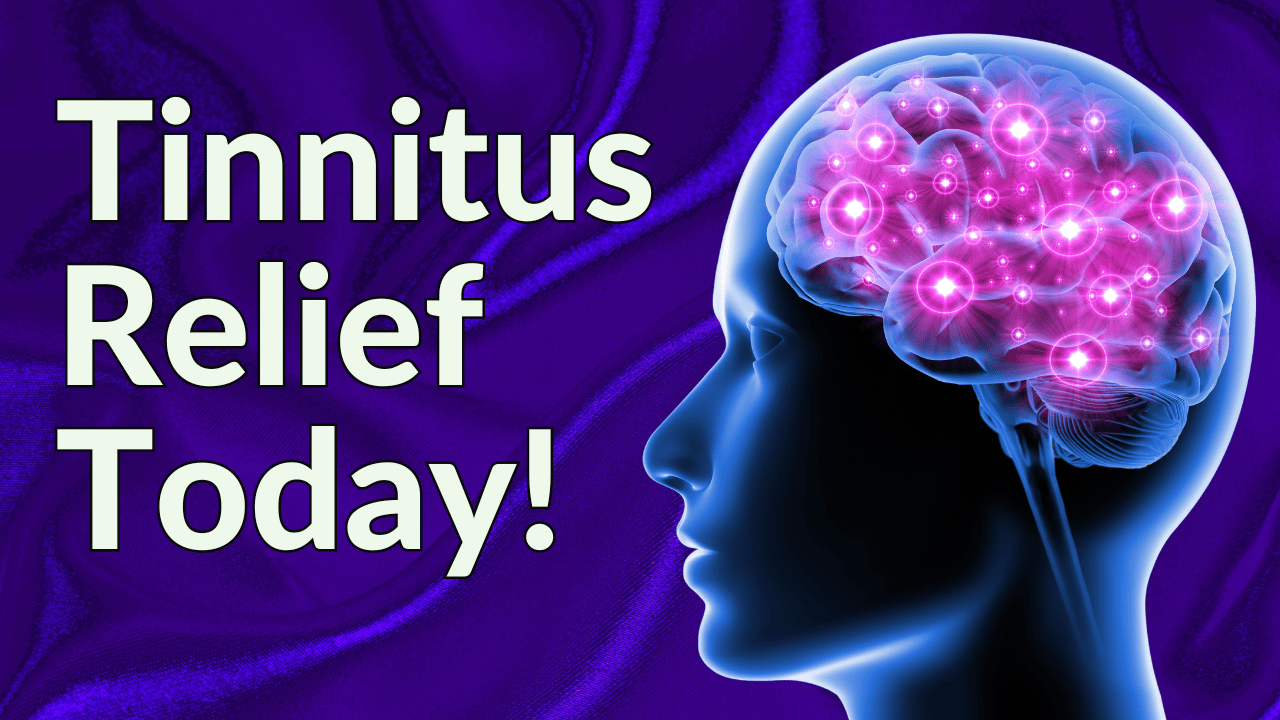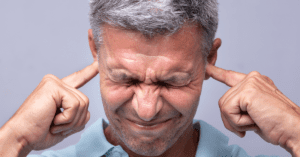Our inner ear system is comprised of two very important mechanisms: hearing and balance. When asked to choose which is more important, most people will say “hearing.” However, it is the balance — vestibular — mechanism that is most vital to our survival.
Balance problems and disorders very frequently involve the ears because two thirds of our body’s balance system relies on the input from our two vestibular organs. Since the organs of hearing and balance are located in the same part of the ear, there are a number of ear disorders that may exhibit symptoms affecting both systems. Although we know that ear disorders and inner ear balance are linked, the exact relationship between the two is not always clear.
How Does Our Sense Of Balance Work?
Our balance system, or vestibular system, (AKA: equilibrium) is located in the inner ear, found deep beyond the ear canal. It is made of organs that sense our body’s movement within space. Rotational (spinning) movement, such as turning our head, is processed by the semicircular canals.
We have three semicircular canals in each of our inner ears. These canals are positioned at right angles to one another, and each is responsible for sensing the head movement at different planes: horizontal, vertical and angular. At the base of semicircular canal are the otolith organs, which are responsible for sensing the linear movement (movement in a straight line), such as when riding on an elevator or in a car.
"Treble Health helped me reduce my tinnitus by about 80%, and now I can live my life again!"


"Treble Health helped me reduce my tinnitus by about 80%, and now I can live my life again!"
– Steve D.
Book a free consultation to learn which Treble Health solution is right for you. Join Steve and thousands more who have found lasting tinnitus relief.
The vestibular organs have fluid inside and membranes lined with tiny hairs. When we move our head, because of the inertia, the fluid lags behind causing the hairs to bend in different directions, depending on the movement. The bending of the hair cells sends impulses to the vestibular nerve, which in turn carries this information to our brains. This helps our brains interpret the head position and movement in conjunction with information received from our visual (eye movements) and proprioceptive (touch) systems.
When one or both of the vestibular systems do not work properly, a person may experience balance problems. They may feel dizzy, unsteady, or perceive a spinning sensation (called “vertigo“).
When the inner ear’s the balance system functions correctly, a sense of equilibrium is felt. This means that we are able to walk, navigate obstacles, and move through the world effectively, and without a sense of discomfort or uncertainty.
When balance disorders arise, the vestibular system is thrown off, and people are less able to effectively traverse through the world – including navigating obstacles, standing, sitting, or walking in addition to experiencing bothersome symptoms of dizziness, lightheadedness, poor balance or vertigo.
How Are Our Ears And Our Balance Systems Connected?
Our inner ears house the organs needed for both hearing and balance. Both the hearing and balance portions of the inner ear have fluid-filled structures that rely on hair cells to relay information to the brain. Although a person may have hearing loss and balance disorders, they the two are not always related and one may occur without the other. As such, hearing loss may exist without dizziness (as is common in the case of age-related hearing loss) and dizziness may occur without hearing issues (as is common in vestibular neuritis or benign paroxysmal positional vertigo). However, they may also co-occur as the result of common underlying conditions.
Inner Ear Disorders



Some of more common conditions that may result in both hearing- and balance-related symptoms are listed below.
Vestibular Schwannoma
A vestibular schwannoma (also called an acoustic neuroma) is a benign growth on the vestibular/hearing nerve. It usually grows fairly slowly, but can cause hearing and/or balance issues over time. It is common for individuals with vestibular neuromas to experience dizziness or lightheadedness, hearing loss in one ear (or one ear worse than the other), and unilateral tinnitus. Anyone experiencing such symptoms should be evaluated by an audiologist and an ear, nose, and throat specialist.
Ototoxicity
Certain medications can cause hearing and/or balance problems. The effects of such medications are referred to as “ototoxicity,” meaning that they are toxic to the ear structures. Symptoms of ototoxicity may include hearing loss, tinnitus and dizziness.
There are over 400 classes of drugs that can lead to hearing loss, dizziness or both over a period of time. However, there are several classes of medications that are known for their severe ototoxicity. These ototoxic medications include aminoglycoside antibiotics (e.g., gentamycin), platin-based chemotherapies (e.g., Cisplatin), Quinine (malaria medication) and loop diuretics (e.g., furosemide).
Individuals who receive these medications as part of their treatment should receive counseling about the likelihood of ototoxic effects and should work with their audiologist and medical providers to manage them, if they occur.
Because some of these medications, such as Cisplatin, provide lifesaving treatment and cannot be stopped, hearing loss and/or dizziness side effects may be unavoidable. It is, therefore, important to address them carefully and with a team of specialists who can manage your health with you safely and carefully.
Meniere’s Disease
Meniere’s disease is a disorder characterized by severe dizziness (usually vertigo) attacks, tinnitus (often low-pitched, roaring), unilateral (one ear only) fluctuating hearing loss, and ear pressure. These symptoms come and go, sometimes as frequently as weekly or only once a year. Although the dizziness symptom may lessen over time, hearing loss tends to get progressively worse.
The precise cause of Meniere’s disease is not known. However, it is believed to be related to either an overproduction or inadequate absorption of the inner ear fluid, which results in increased inner ear pressure or even rapture of the inner ear membranes. Individuals experiencing the symptoms of this disease may be treated with vestibular suppressants (e.g. Antivert), diuretics, and dietary changes (decreased salt intake). More severe cases may be addressed with surgery.
Individuals experiencing Meniere’s symptoms should schedule an evaluation with an ear, nose, and throat physician and audiologist to help diagnose the condition and create a plan of treatment to manage symptoms and any other issues that can arise as a result of Meniere’s disease.
Labyrinthitis
Labyrinthitis is another inner ear condition that causes the symptoms of dizziness, and unilateral hearing loss and tinnitus. Labyrinthitis is an inflammation of the inner ear labyrinth as a result of either a viral or bacterial infection.
Most cases of labyrinthitis are viral and follow episodes of flu or cold, but bacterial labyrinthitis may occur in patients with chronic otitis media (middle ear infection). Patients who have labyrinthitis usually experience sudden onset of vertigo, nausea/vomiting and unilateral hearing loss. Some patients may also experience tinnitus.
Viral labyrinthitis does not require any medications, while bacterial labyrinthitis needs to be treated with antibiotics. Dizziness caused by labyrinthitis may be quite debilitating and may last several weeks before dissipating; although, some patients may require physical therapy, called vestibular rehabilitation, to fully regain their equilibrium. Tinnitus may go away; however, hearing loss will typically not improve and may require management with hearing aids. Individuals experiencing symptoms of labyrinthitis are treated by an ear, nose and throat specialist.
Tinnitus And The Inner Ear



Although tinnitus is not considered an inner ear condition, it a common symptom of many balance disorders effecting the inner ear balance system. It is worth noting, however, that tinnitus can be caused by many causes, some of which are external and others which are internal.
External Causes Of Tinnitus Can Include:
- Loud noise exposure. Loud noise exposure can occur from a variety of areas. Working in a loud environment can cause damage to ear structures through noise exposure, as can regularly listening to loud music or attending loud events. Over time, any persistent exposure to excess, loud noises can lead to tinnitus development.
- Head injury. Sounds are interpreted by the brain, which means that head injuries can be linked to the development of auditory issues, including the phantom sounds unique to tinnitus. Head injury on its own can lead to many different types of health conditions, many of them existing in conjunction with loss of balance and damage to auditory perception.
- Neck injury. Like head injuries, neck injury can be an underlying cause of tinnitus development. People may not immediately associate good balance with the neck, but the head, neck, and ears are all involved in vestibular system function.
Internal Causes Of Tinnitus Can Include:
- Certain medical conditions. Some medical conditions affect sensory systems, including the auditory system. Positional vertigo and other balance issues can be linked to tinnitus. Even some heart issues can lead to tinnitus development, including a more serious condition that leads to a type of tinnitus called pulsatile tinnitus. Low blood pressure and high blood pressure can both contribute to the development of health conditions that may or may not involve hearing loss or misperception.
- Damage to the inner ear. Damage to the inner ear can be caused by damage to the sensory system, a loss of the small hairs lining the inner and middle ear, and injury to the innermost portions of the ear, whether from acute injury, infection, or noise.
- Viral infection and bacterial infection. Ear infection is a common cause of tinnitus, particularly if that infection goes untreated. Balance relies heavily on the inner ear and vestibular systems, and a lack of inner ear and vestibular health can lead to numerous issues involving the ear system, including motion sickness, an inability to maintain balance, and tinnitus.
I Am Struggling With A Balance Disorder. What Should I Do?
Balance disorders can be very dangerous. An individual who is dizzy is likely to experience difficulty walking and may be at risk for falling, which can lead to injuries. Additionally, dizziness can occasionally be due to something extremely serious, such as strokes or vestibular migraines. If you experience dizziness, see an ear, nose, and throat specialist or your primary care physician. A balance issue can signal neurological conditions, cardiovascular conditions, and more. A balance disorder may not be an isolated condition, but involve hearing loss and other communication disorders or neurological concerns.
Next Step: Book Free Consultation
- 75% of patients reduced their tinnitus within three months after following our recommendations.
- "I feel like Treble Health literally gave me my life back." - Randy S. (verified customer)
- Join thousands of people who have reduced their tinnitus after scheduling a free consultation.


















